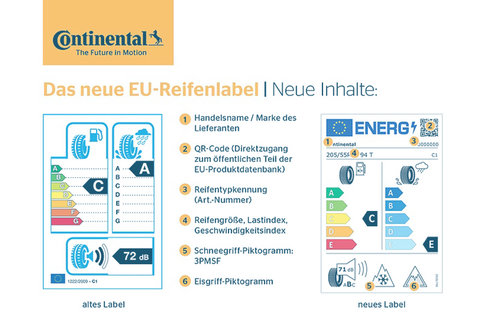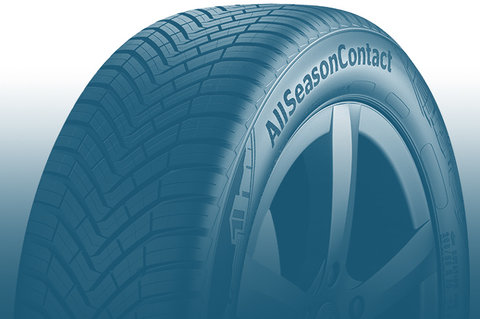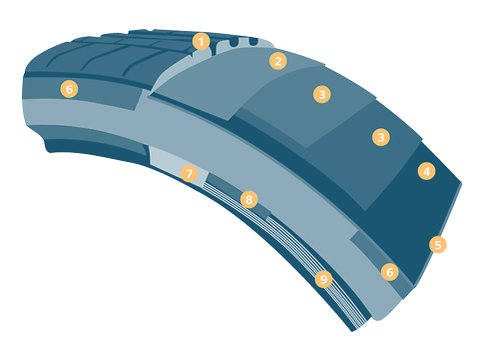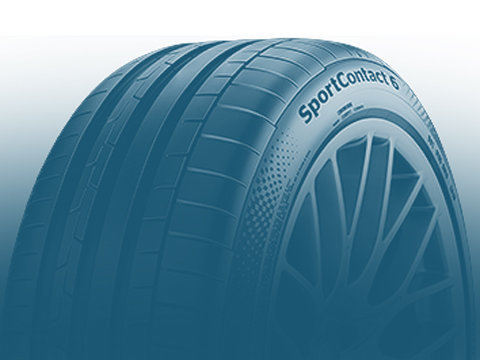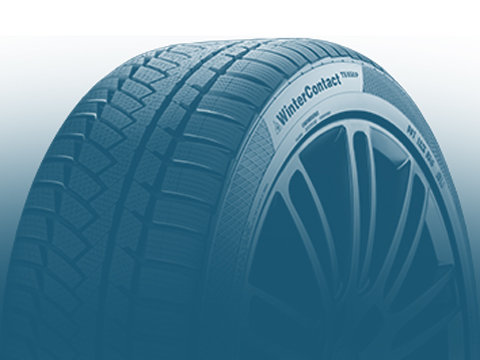Tyres for electric cars
Electric cars place special demands on tyres. That is why many tyre manufacturers now offer tyres that are made specifically for electric cars.
Function
The tyres are the only direct link between the car and the road. The tread contact area must support the weight of the car and must be able to transmit longitudinal and lateral forces:
- Longitudinal forces in the direction of movement when accelerating or braking.
- Lateral forces transverse to the direction of travel that occur when cornering. These lateral forces are the forces that keep the car on the road on corners.
In addition, car tyres must meet the following requirements:
- Precise transmission of steering forces
- Absorption and damping of bumps in the road
- Performance in both wet and dry conditions
- Low rolling resistance
- Low noise rotation
- Low vibration rotation
- Long service life
The tyres thus have a crucial influence on handling, safety and the comfort of a vehicle. Electric cars place especially high demands on tyres.
Demands place on electric car tyres
Tyres for electric cars must meet the specific demands associated with the special characteristics of electric vehicles. Electric cars, for example, are usually much heavier than conventionally powered cars due to their heavy batteries.
Safety
The considerable weight puts a lot of strain on electric car tyres. The greater mass and the resulting higher inertia mean that a particularly high level of traction is required when cornering and during braking manoeuvres. What’s more, the fact that torque can be utilised immediately in electric cars places a particularly high strain on the tyres. For these reasons, tyres designed specifically for electric cars have a stronger sidewall for greater stability and more robust rubber compounds for a high level of traction.
Environmental protection
Electric car tyres not only need to be safe and maintain short braking distances, but also have low rolling resistance. After all, lower rolling resistance translates into a greater electric range and higher efficiency. Narrower tyres in particular help to reduce rolling resistance.
Comfort
Since an electric car is very quiet, the rolling noise of the tyres can be more noticeable. Tyre manufacturers are therefore working to make tyres quieter by optimising rubber compounds, the tread design and tyre structure. Low-noise tyres help to make the electric car driving experience quieter by reducing the tyre noise transmitted into the passenger compartment.
Value retention
Maintenance plays a crucial role in extending the service life of electric vehicle tyres. It is important to check the tyre pressure regularly and adjust it if necessary, as is the case with other tyres. Moreover, it is advisable to have the tyres checked regularly at the workshop for excessive or conspicuous wear.



